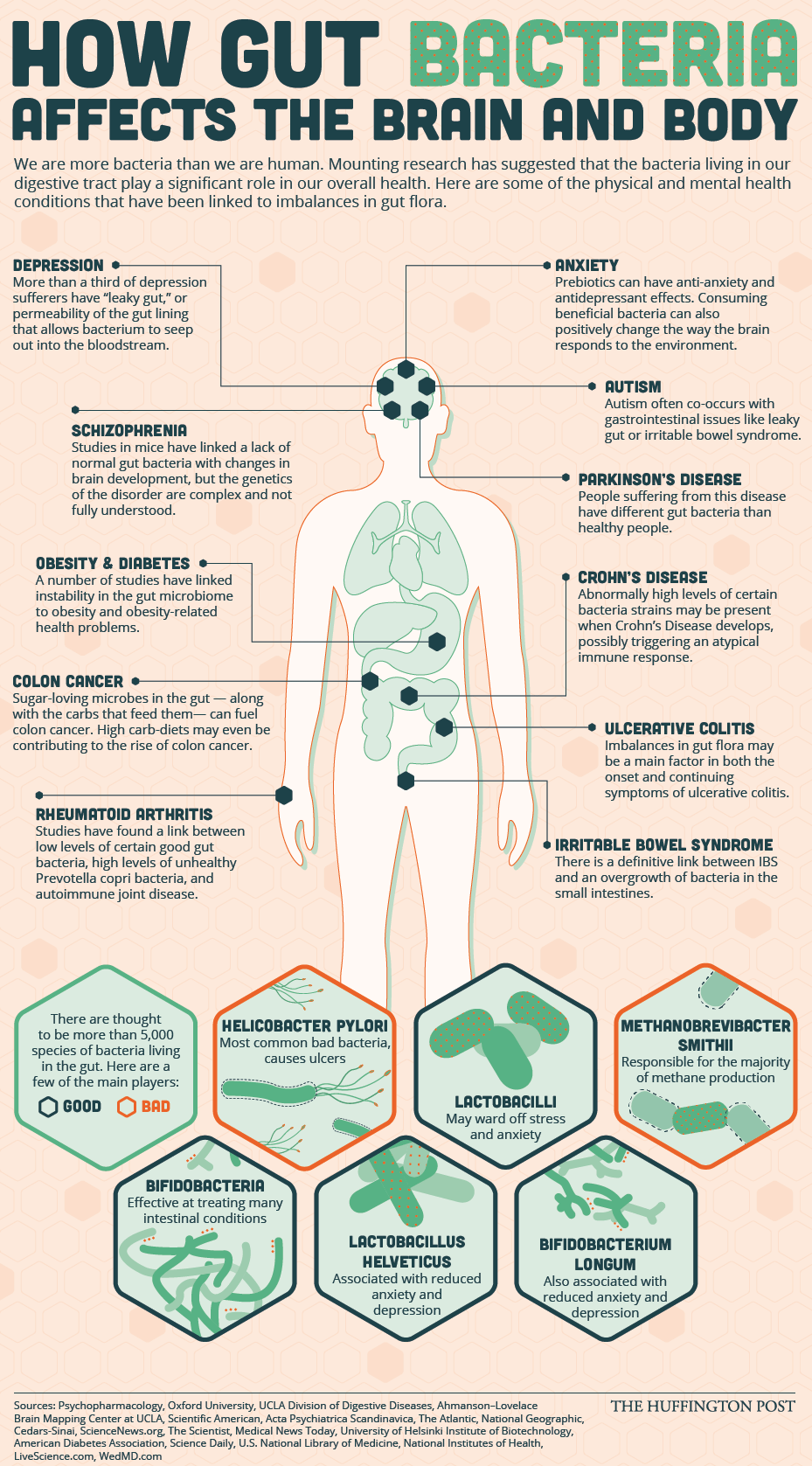
Could Your Mental Health Issue Be The Result of Your Gut Bacteria?
If you've been running in health circles lately, you may have heard of the term microbiome. The microbiome refers to the populations of microorganisms living in our guts. In the last several decades, their impact on health have been largely ignored. Now, recent research has revealed that they play a incredibly prominent role in our health.
Eighty percent of our immune system is housed in the gut, and the health of the microbiome profoundly affects our risk for disease. This newer research has also shown that these populations play a significant role in our emotional well-being. Therefore, if you're suffering from anxiety or depression, could it be that these little “critters” in your gut may be to blame? According to an article entitled, How Gut Bacteria Affects the Brain and Body by the Huffington Post, here are 7 ways that unfavorable bacteria populations may be affecting your health. Read the full article here.

- Depression: More than a third of depression sufferers have a ‘leaky gut,’ or permeability of the gut lining, that allows bacterium to seep out into the bloodstream.
- Obesity & Diabetes: A number of studies have linked instability in the gut microbiome to obesity and obesity-related health problems.
- Anxiety: Prebiotics can have anti-anxiety and anti depressive effects. Consuming probiotics can also positively change the way the brain responds to the environment.
- Schizophrenia: Studies in mice have linked a lack of normal gut bacteria with changes in brain development, but the genetics of the disorder are complex and not fully understood.
- Autism: Autism often co-occurs with disorders like leaky gut or irritable bowel syndrome
- Parkinson’s Disease: People suffering from this disease have different gut bacteria than healthy people.
- Irritable Bowel Syndrome: There is a definitive link between IBS and an overgrowth of bacteria in the small intestine.
My take on this:
The effects of our gut health on both our physical and emotional health is one of my favorite areas of research. Not only does it hold amazing promise for the future of medicine, but also it gives credence to the importance of our daily dietary decisions. No matter who you are or what you’re suffering from, research now suggests that improving your gut health is likely to dramatically improve your overall health.
If you have already taken control of your health with the paleo diet, then this process of healing has already begun. Most people are unaware that healing the gut is not accomplished overnight. It can take many months (if not years) to fully reverse the damage from an overly processed diet, chronic stress and overuse of antibiotics.
If you suspect you have gut damage, begin with the following steps:
- Continue eating a paleo diet focusing on ample fiber, organic fruits and veggies and high quality animal protein and fat
- Eliminate sugar, caffeine, wheat and conventionally-raised dairy
- Incorporate fermented foods (like sauerkraut) as condiments 2-3 times per week
- Consume prebiotics such as artichokes, dandelion greens, onions, leeks, and garlic a few times each week
- Use a high quality probiotic containing at least 10 billion CFUs (colony forming units) every day. Find brands with a wide diversity of bacterial species and vary the probiotics you use from month to month.
- Drink bone broth 3-4 times per week
If you have incorporated these tips and still suspect you may be suffering from gut issues, try an elimination diet to explore the possibility of foods allergies or consult a qualified health practitioner.
Here’s to a healthy gut lining!






